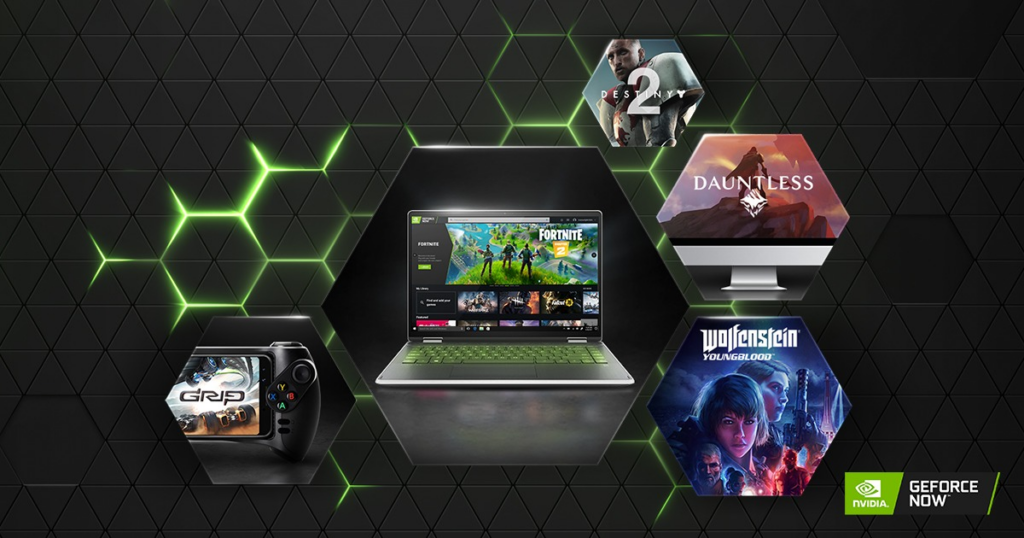NVIDIA CEO Predicts AI-Driven Gaming Worlds Rendered in Real-Time

In a bold proclamation that may redefine the very fabric of video game development, NVIDIA CEO Jensen Huang has forecasted a near future where video games are crafted entirely by artificial intelligence, predicting that within the next five to ten years, we could witness games “where every pixel is generated at real-time frame rates.” This statement, made at the GPU Technology Conference, underscores a pivotal shift towards AI integration in gaming, suggesting a horizon brimming with possibilities and challenges.
The Dawn of AI-Generated Gaming Worlds
The gaming industry, known for its rapid adoption of cutting-edge technologies, is on the cusp of an AI revolution. Game development studios, leveraging tools provided by entities like Unity, are increasingly relying on AI to streamline the creation of assets and code, enhancing efficiency and sparking creativity. NVIDIA, a titan in the GPU market and a key player in AI advancements, stands at the forefront of this transition, driving innovation and facilitating the creation of complex, AI-generated content.
Imagining the Future: Fully AI-Generated Virtual Realities
The concept of entire game worlds dynamically generated by AI, complete with real-time interactions and narratives, still veers into the realm of speculative fiction. However, recent strides in image and video generation, exemplified by technologies like OpenAI’s Sora, hint at the potential for AI to construct immersive, three-dimensional environments in the not-so-distant future. Despite the current limitations, the pace of progress suggests that AI’s role in creating virtual spaces and characters will only deepen, transforming how narratives unfold and how players engage with digital realms.
From Concept to Interaction: AI’s Evolving Role in Game Design
This week, video game giant Ubisoft unveiled “NEO NPCs,” prototypes for AI-powered non-playable characters capable of conducting natural conversations with players. Such innovations represent just the tip of the iceberg in AI’s integration into gaming, offering a glimpse into a future where interactions within virtual worlds are indistinguishable from those in reality. The democratization of AI tools further promises to lower barriers to game development, enabling creators with minimal coding expertise to contribute to the creation of complex, engaging games.
Navigating the Ethical Maze
As the industry ventures further into AI-driven development, ethical considerations come to the fore. The potential for AI to generate content based on existing works without proper attribution has sparked debates around copyright and creator rights, posing dilemmas that the gaming sector, like many others, will need to address. The challenge lies in balancing the immense creative potential of AI with the need to fairly acknowledge and compensate the human ingenuity that fuels its learning.
A New Era Beckons
As NVIDIA’s Jensen Huang envisions a future dominated by AI-generated gaming experiences, the industry stands on the brink of a transformative era. The potential for AI to craft entire gaming worlds in real-time opens up unprecedented avenues for storytelling, immersion, and interaction. Yet, as we navigate this uncharted territory, the gaming community must also grapple with the ethical implications of this new frontier. The journey ahead promises to be as challenging as it is exhilarating, charting a course towards a future where the boundaries between the virtual and the real are increasingly blurred.
- "Elden Ring: Shadow of the Erdtree" - A Glimpse into New Adventures
- 'Cyberpunk 2077' Free Play Weekend
- Baldur's Gate 3 2024 New York Game Awards Wins Game of The Year
- Best of Steam Next Fest 2024
- Bitcoin's Unstoppable Ascent: Nearing U.S. Dollar Apex as Euro Record Tumbles
- Blizzard Revolutionizes Diablo 4: A Leap Towards a New Gaming Epoch
- Brilliant Labs Unveils Frame: The First AI Glasses with Multimodal Assistant
- Budget Boost: Affordable Accessories for Enhanced Gaming
- Budget-Friendly Lens Magic: Revealing Top Camera and Photography Gear Deals
- Call of Duty: Modern Warfare 3 and Warzone 3 Unveil Season 3 Onslaught
- Discovering the Year's Premium Wireless Earbuds
- Game Changers Unleashed: Decoding the Thrilling Frontier of Digital Gaming Marketplaces
- Game Deals: Elevate Your PC Gaming Experience!
- Helldivers 2: A Delightful Dive into Chaotic Co-op Combat
- Looking Ahead: The Most Anticipated Games of 2024
- Major Game Developers Defend "Entertaining" Gameplay Against Addiction Lawsuits
- Marvel Rivals Unveiled: A New Era for Superhero Games
- Mastering Gaming Laptops: Your Ultimate Guide!
- Most Anticipated Games Releasing: March 2024 and Beyond
- Neuralink's 'Telepathy': Transforming Lives Through Mind-Powered Gaming
- NVIDIA CEO Predicts AI-Driven Gaming Worlds Rendered in Real-Time
- Nvidia RTX 4080 SUPER: A New Era of Accessible High-Performance Gaming
- Palworld: The New Frontier in Open-World Survival Gaming
- PlayStation Plus Unveils Spellbinding Additions for April 2024
- Revolutionizing Reality: A Deep Dive into Apple Vision Pro's World
- Supercharge Your Play: Unleash Unbelievable Savings on Top-notch Gaming Software!
- Tech Bundle Perks: Unlocking the Advantages of Accessory Pairings
- Tech Trends: Shaping Our Ever-Changing World!
- The Pinnacle of Innovation: CES 2023’s Standout Gadgets
- The Rabbit R1: Revolutionizing Personal Assistance with AI
- The Ultimate Guide to Dominating Helldivers 2 with the Best Weapons
- Unveiling Claude 3: The Dawn of Next-Generation AI
- Unveiling Digital Treasures: Software Discounts and Coupons